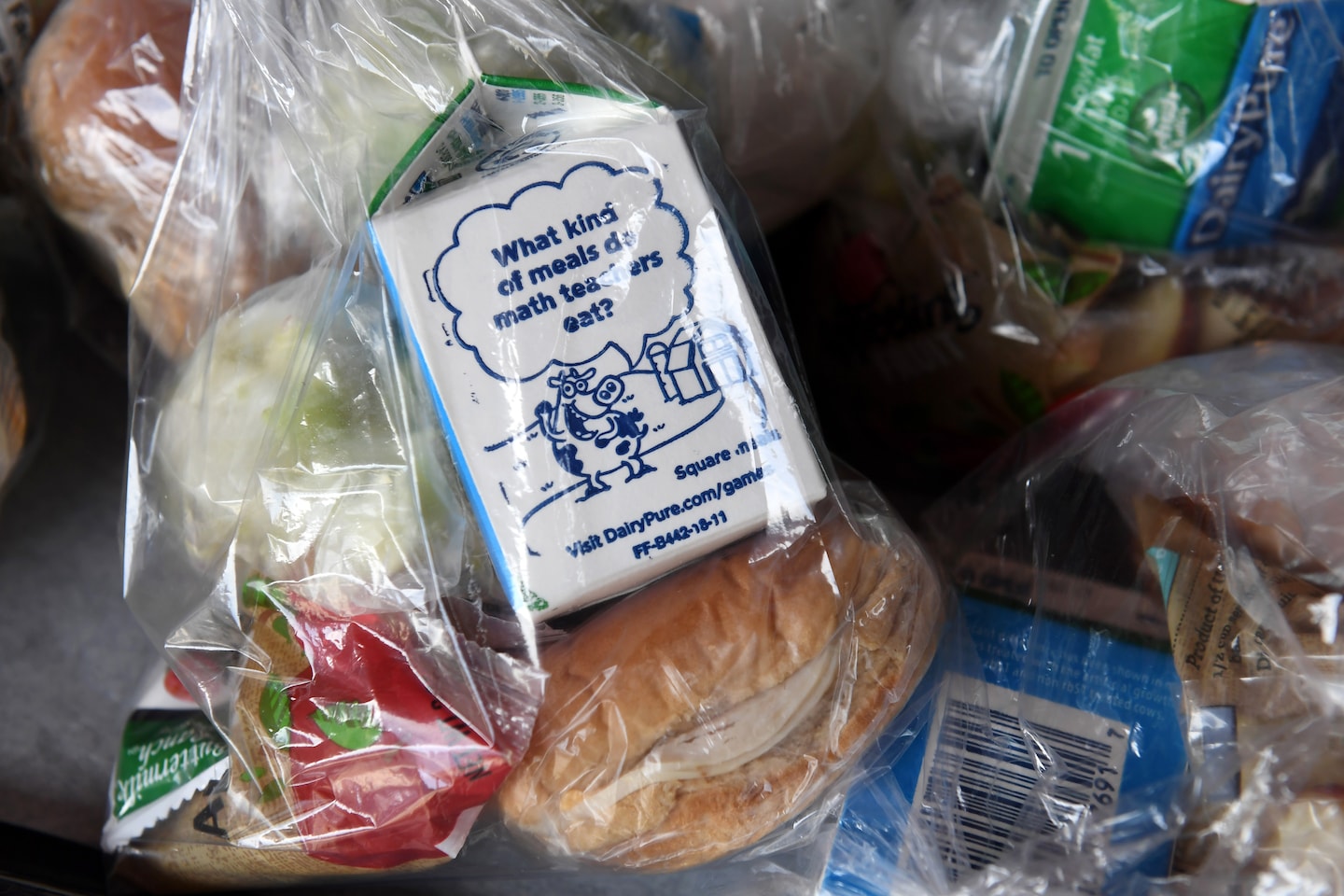Should all American kids get a free school lunch? The pandemic might make that a reality.

The Cares Act $600 unemployment benefit ended this week and moratoriums on eviction are lifting Saturday in many places. The first round of the Small Business Administration’s PPP loans expired at the end of June, as did the Pandemic EBT program, a debit-card benefit for food-insecure households. The Republicans’ Health, Economic Assistance, Liability Protection and Schools Act (Heals Act) proposal unveiled this week did not expand the food stamps Supplemental Nutrition Assistance Program (SNAP) or extend Pandemic EBT.
The Agriculture Department put out a news release Wednesday trumpeting a SNAP benefit increase in fiscal year 2021 aimed at helping people “adjust to changing economic conditions and support Americans during tough times,” said Food and Nutrition Service Administrator Pam Miller in a statement.
However, Maya Sandalow, a policy associate focused on SNAP at the Center for Science in the Public Interest, said this is an annually mandated adjustment that reflects the huge increase in food prices. Grocery prices showed their biggest monthly increase in nearly 50 years in April.
“The release gives the impression that the agency is increasing SNAP benefits because of the pandemic,” Sandalow said. “Not only does the adjustment leave out some people, it’s not a real increase. Moreover, SNAP benefits have long been vastly inadequate, allocating only $1.40 per person per meal in 2020.”
The USDA did not respond to a request for comment.
The benefit adjustment, which begins in October, includes a 5.3 percent increase in the maximum benefit for those who are very poor, but no adjustment to the minimum benefit for those who have some level of income but need a boost. The minimum benefit remains just $16 per month, hardly sufficient to sustain the roughly 31 million Americans unemployed.
The USDA release concludes with a list of other efforts the Food and Nutrition Service has undertaken to help American families put food on the table during the coronavirus pandemic, many of which Sandalow said are exaggerations or mischaracterizations of the breadth of the programs. For example, she said, the USDA claims Pandemic EBT, now expired, provided a benefit to 99 percent of children normally receiving free or reduced-price school meals.
Thirty million students eat school meals. Of them, 22 million qualify for free and reduced-price meals. According to an Urban Institute study, only 6 in 10 students eligible for free and reduced lunch have managed to access meals during the pandemic.
With many school plans for the fall still in flux, Andrés’s World Central Kitchen and the American Federation of Teachers announced a coalition Thursday of 35 organizations ranging from the NAACP to the Hispanic Federation, to urge Congress to expand and extend the school meal program in light of the worsening hunger crisis brought on by the pandemic.
“This is new initiative, obviously, but it’s old,” said Andrés. “Let me take you back to 1946 when the school lunch program started. The military advocated for it, because they were getting young men from rural communities who were highly underfed and unhealthy. We should never be seeing children in the Bronx during the pandemic waiting on line for food for six hours in the richest nation on the planet.”
House Education and Labor Committee Chairman Robert C. “Bobby” Scott (D-Va.) on Thursday introduced the Pandemic Child Hunger Prevention Act to provide universal breakfast and lunch this school year for all schoolchildren. If enacted, this bill would provide free meals to students regardless of their family’s income. The bill allows schools operating summer feeding and after-school programs to serve all children without having to certify the eligibility of each individual child.
Thirty-six senators expressed support for the extension of pandemic school feeding waivers in a letter, spearheaded by Sen. Maggie Hassan (D-N.H.) and sent Wednesday to Agriculture Secretary Sonny Perdue.
Not all hunger advocates are in favor of the bill. Share Our Strength’s senior vice president Lisa Davis said her organization is not endorsing the bill. She said she is optimistic that SNAP will be expanded and Pandemic EBT extended.
“There’s a new study every week showing a dramatic increase in need due to the pandemic,” Davis said. “When the dollars on the table are limited, this could work against that.”
The Center for Science in the Public Interest and the American Heart Association endorsed the bill.
“We do know that pre-pandemic, food-insecure children had more negative health outcomes,” said Mark Schoeberl, executive vice president of advocacy for the American Heart Association. “And that food-insecure children were more likely to eat and receive more of their nutrient intake from school meals, making it even more critical that we use all tools at our disposal to provide children with healthy school meals during this time of uncertainty.”
The School Nutrition Association, the trade group for school food-service manufacturers and school food professionals, is strongly endorsing this bill.
“With so many families struggling to put food on the table during the pandemic, millions more students will depend on consistent, daily access to school meals this fall,” said SNA president Reggie Ross in a statement. He said the bill spares overburdened schools, many considering vastly different learning models during the pandemic, the massive task of distributing and processing meal applications and reduces the stigma for children who depend on free meals. SNA has also urged Congress to provide emergency financial relief to school meal programs to cover costs associated with coronavirus closures.






